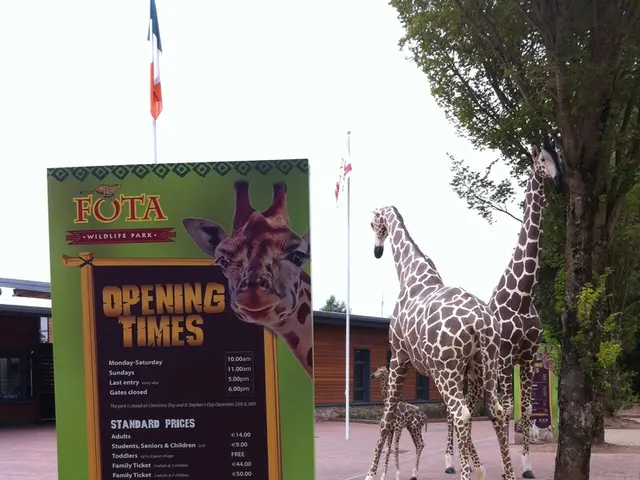Diverse Vocations for Young Minds: Encouraging Children to Discover Career Paths
NEW YORK - As a third-grader, Angelina Rivera harbored dreams of becoming a scientist, her fascination with the natural world piqued by bugs, rocks, and everything in between. However, a family trip to Honduras when she was eight had a profound impact on her career aspirations. A confrontation with the police, who aggressively questioned her father about a crime unrelated to the family, shook her and opened her eyes to the reality of discrimination based on appearance and location.
This formative experience eventually steered Rivera toward a career in politics. After studying international relations in college, the 22-year-old now works as an assistant at the Consulate General of Japan in Detroit. Reflecting on her career path, Rivera says, "I found that it was difficult for me to ignore the urge, the calling, to go into diplomacy."
The trajectory of one's career can take many shapes, often influenced by circumstance, luck, exposure, and adaptability. While early life ambitions may set some individuals on a clear path, others find themselves drawn to unexpected professions along the way.
According to Jennifer Curry, a Louisiana State University professor who studies career and college readiness, exposing children to a multitude of career paths at a young age can help break down the limiting effects of gender, racial, and socioeconomic stereotypes. By broadening children's understanding of the possibilities available to them, they are less likely to limit their future career choices based on societal expectations tied to their background.
Curry highlights the importance of early exposure, stating, "Our goal is to avoid children limiting themselves in careers at such a young age—as early as five years old."
To help children explore various careers, parents and educators can start conversations about the diverse roles they encounter in their daily lives. Encouraging children to identify different jobs in their community and discussing the people who hold those positions can help foster their curiosity and self-awareness.
By pretending to be doctors, nurses, or builders, children can gain a better understanding of the various roles that contribute to the building and maintenance of hospitals, bridges, and other infrastructures. Encouraging a holistic view of careers can help children envision themselves in roles they previously may not have considered.
For instance, after realizing there were no children's books about public relations, Curtis Sparrer wrote one, featuring a 10-year-old at the center of the action. Sparrer, who co-founded a public relations agency, wanted to help young readers avoid the confusion he felt growing up, when his love for movies led him down a winding path before he found his niche in PR.
In addition to their interests, children's personality traits can provide insight into potential career paths. By the age of five, children can exhibit patterns in their social behavior, preferences for solitude or company, and affinity for hands-on activities or reading.
Career exploration courses and electives in subjects like marketing, computer science, and health care are becoming increasingly common in high schools. Meanwhile, some middle schools are offering career exploration classes to help students envision their future career prospects.
Aside from school offerings, apprenticeships and vocational training programs provide alternative paths for students who may not be interested in a four-year degree. This shift in focus on career and technical education stems from both the changing workforce and the recognition that many young people are looking for employment opportunities that allow them to earn and learn simultaneously.
In the ever-changing world of work, it is essential to keep children informed about emerging technologies that will shape the future job market, particularly artificial intelligence. By teaching children about AI from a young age, they can develop the skills necessary to adapt to the changing job landscape and make informed decisions about their future careers.
According to Hadi Partovi, founder and CEO of Code.org, it is crucial for parents and teachers to help children understand the benefits and drawbacks of AI, and even teach them to write computer programs. Through early education in AI, children can develop skills such as resilience, curiosity, collaboration, and teamwork, which will be essential in any future career.
- Angelina Rivera's encounter with discrimination during her family trip influenced her career choice, steering her towards politics.
- Exposing children to various career paths at an early age, as suggested by Jennifer Curry, can help break down stereotypes and expand their future career choices.
- By writing a children's book about public relations, Curtis Sparrer aimed to help young readers understand different professions and avoid the confusion he felt in his career development.
- Understanding emerging technologies, such as artificial intelligence, is essential for children to adapt to the changing job landscape and make informed decisions about their future careers.




